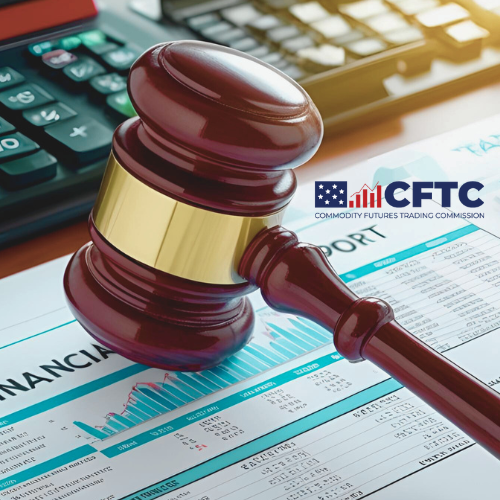This week the US Department of Justice (DOJ) and the Swiss Federal Council (the Bundesrat) announced (click here and here) penalties against Gunvor SA totalling approximately USD $760 million for various bribery-related cases involving officials at Petroecuador, the Ecuadorean national oil company. This follows the recent announcement (click here) of the conviction of an ex-Vitol trader for FCPA violations in Ecuador and Mexico.
DOJ Announcement:
The case background from the DOJ announcement is briefly summarised as follows:
- Gunvor pleaded guilty and will pay over USD $661 million to resolve violations of the Foreign Corrupt Practices Act (FCPA);
- The case involved a corrupt scheme to pay substantial bribes to Ecuadorean government officials to secure business with Petroecuador, Ecuador’s state-owned and controlled oil company;
- After the guilty plea, the court sentenced Gunvor to pay:
- Criminal monetary penalty of USD $374,560,071; and
- Forfeit USD $287,138,444 in ill-gotten gains.
- A discount of a quarter of the criminal fine each for amounts Gunvor pays to the Swiss (see below) and Ecuadorean authorities under their investigations into the same misconduct provided the payments are made within one year;
- The Office of the Attorney General of Switzerland announced today a parallel resolution of its investigation into Gunvor’s misconduct that involved payment of approximately $98 million by Gunvor to Swiss authorities;
- Between 2012 and 2020 Gunvor and its co-conspirators paid more than USD $97 million to intermediaries knowing that some of the money would be used to bribe Ecuadorean officials (Nilsen Arias Sandoval is named);
- Gunvor managers and agents attended meetings in the United States and elsewhere and bribery payments were routed through banks in the United States using shell companies in Panama and the British Virgin Islands controlled by Gunvor’s co-conspirators (not named);
- A the direction of Gunvor, one of the intermediaries used the money to purchase an 18-carat gold Patek Philippe watch for Sandoval;
- In exchange for these bribery payments, high-level Ecuadorian officials helped various state-owned entities, which were acting as front companies for Gunvor, win the rights to a series of oil-backed loan contracts with Petroecuador;
- This allowed Gunvor and its co-conspirators to avoid a competitive bidding process and to obtain contractual terms that it could not have obtained otherwise;
- Gunvor also received confidential Petroecuador information in exchange for the bribes allegedly earning more than USD $384 million in profits from corruptly obtained contracts;
- While the nature and seriousness of the offense determined the penalty, Gunvor received credit for cooperating with the investigation, including:
- Producing documents to the DOJ from multiple foreign countries expeditiously while navigating foreign data privacy and criminal laws;
- Providing information obtained through its own internal investigation to the department, which allowed the department to preserve and obtain evidence as part of the department’s investigation;
- Making detailed, factual presentations to the DOJ;
- Arranging for the interview of an employee based outside the United States;
- Promptly collecting, analyzing, and organizing voluminous information, including complex financial information, at the request of the DOJ, and producing an analysis of trading activity conducted by multiple outside forensic accounting firms retained by Gunvor;
- Translating foreign language documents to facilitate and expedite review by the DOJ; and
- Imaging the phones of relevant custodians at the beginning of Gunvor’s internal investigation, thus preserving business communications sent on mobile messaging applications.
- The DOJ also credited Gunvor for implementing timely and appropriate remedial measures including:
- Eliminating the use of third-party business origination agents;
- Enhancing its third party due-diligence process;
- Developing and implementing a control framework for internal business developers and additional layers of review and approval for counterparty payments;
- Enhancing the independent compliance committee with responsibility for reviewing high-risk transactions;
- Engaging resources to review its compliance programme and test the effectiveness of its overall reporting process, its reporting hotline and the effectiveness of the investigation of reports made through the hotline;
- Evaluating and updating its compensation policy to better incentivize compliance with the law and corporate policies;
- Hiring additional compliance personnel;
- Testing and enhancing its compliance programme, including by conducting compliance culture reviews, testing new third party due diligence process and payment controls, and evaluating controls around business development activities;
- Developing and implementing a risk-based business communications policy that addresses the use of ephemeral and encrypted messaging applications.
- The DOJ also considered Gunvor’s history of misconduct noting a 2019 bribery enforcement case (click here) by the Swiss authorities involving the Congo-Brazzaville and Côte d’Ivoire;
- Gunvor admitted having, at the time, insufficient controls to prevent the underlying misconduct and failing to take “all the reasonable organizational measures to prevent its employees and agents from engaging in bribery”;
- In mitigation, the DOJ statements notes that the current enforcement relates to activity over a similair time period.
Bundesrat Announcement:
The Swiss case deals with the same facts as those from the DOJ case and the investigation was closely coordinated between the Swiss Attorney General’s office and US authorities. The less detailed case background from the Bundesrat announcement is briefly summarised as follows:
- In June 2021 the Office of the Attorney General opened a criminal investigation against unnamed persons on the suspicion of possible bribery payments to Ecuadorian officials;
- The investigation relied heavily on court records from criminal proceedings conducted by the US authorities;
- Coordinating with foreign agencies, including the US in particular, led to the criminal investigation being extended to Gunvor SA in January 2023 for the suspicion of bribery of foreign public officials;
- It was found that at least between February 2013 and February 2017 bribes amounting to around USD $7.5 million were paid to an Ecuadorian official who held a senior position at Petroecuador, the state owned oil company;
- The bribes were carried out with the involvement of a former employee of the Gunvor Group and two intermediaries who operated through an offshore company (the three people involved have been found guilty in the US);
- The corrupt transactions in question gave Gunvor direct advantages through Petroecuador concluding oil trading contracts with the two companies with which the Gunvor Group had made back-to-back agreements with;
- The measures in place at Gunvor from February 2013 to February 2017 to fight against corruption were clearly not sufficient to prevent the corrupt activities which occurred with the Ecuadorian state owned oil company;
- Gunvor was found to be criminally responsible for the bribery of foreign public officials under the Criminal Code and was fined CHF 86.7 million comprising of a CHF 4.3 million fine and CHF 82.3 million in ill-gotten gains.
 RegTrail Insights
RegTrail Insights
The DOJ goes to lengths to outline the positive actions taken by Gunvor to pre-emptively strengthen their internal control framework as well as highlighting the extent of their cooperation throughout the investigation. Firms are advised to take note of such messaging. It is entirely possible that these significant fines and disgorgements could have been far higher without such cooperation. It should also be noted the extent to which the US and Swiss authorities coordinated their investigations in these cases with the Swiss relying on US case records in order to open their own criminal investigation.

